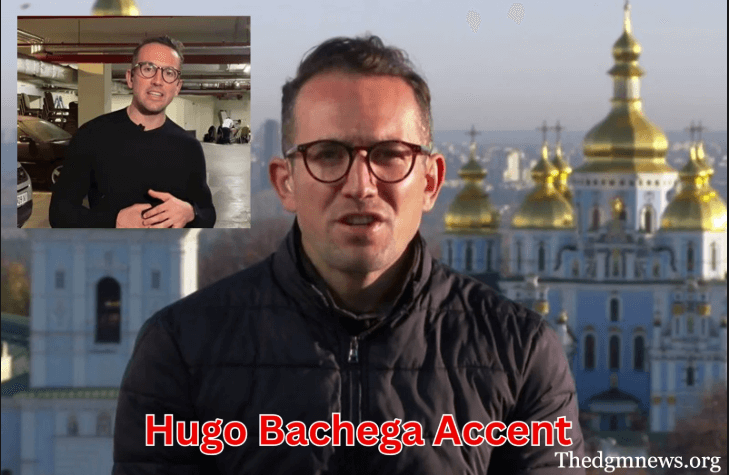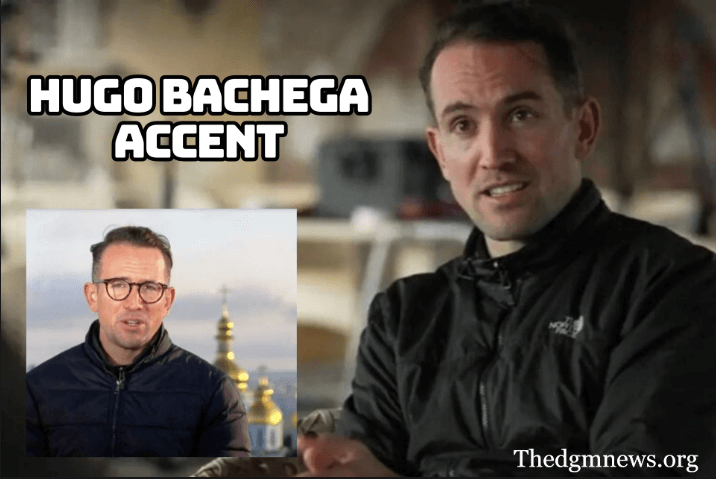Introduction
Hugo Bachega, a prominent journalist known for his powerful reporting with the BBC, has caught the attention of global audiences not only for his fearless journalism but also for his unique accent.
Viewers and listeners often ask, “Where is his accent from?” or “Why does he sound British, yet not entirely?”
This curiosity speaks volumes about how accent plays a role in perception, identity, and cultural heritage.
In this article, we unpack the origin, influence, and implications of Hugo Bachega’s accent, diving into his personal and professional background to provide a comprehensive perspective.
Who Is Hugo Bachega?

- Nationality: Brazilian
- Profession: International Correspondent for BBC News
- Notable Coverage: Middle East conflicts, Brazilian politics, Ukraine war, refugee crises
Bachega is celebrated for his ability to report from conflict zones with empathy and precision. His global reach and culturally sensitive storytelling have made him a trusted voice in journalism.
What Makes Hugo Bachega’s Accent Unique?
The Multilayered Nature of Accents
An accent is more than just the way someone speaks. It reflects:
- Language learning background
- Exposure to different cultures
- Educational influences
- Social adaptation
Hugo Bachega’s accent exemplifies this layered complexity. It blends his Brazilian heritage, British English fluency, and global media exposure.
Where Does Hugo Bachega’s Accent Come From?
1. Brazilian Native, English Mastery
Born and raised in Brazil, Bachega’s first language is Portuguese. However, due to his education and career in journalism, he became highly fluent in English.
- Brazilians learning English often develop an accent influenced by:
- Native Portuguese intonation
- Formal British English or American English (depending on schooling)
- Native Portuguese intonation
2. BBC Influence: British English Accent
Working for the British Broadcasting Corporation (BBC) significantly shaped Bachega’s English pronunciation. The BBC encourages a neutral or British-leaning accent for consistency across its global programming.
- Exposure to colleagues with Received Pronunciation (RP)
- Consistent use of British grammar, vocabulary, and speech rhythm
- Long-term residence or work trips in the UK and Europe
This influence is audible in Bachega’s speech: a polished, British-inflected tone layered over subtle Latin undertones.
3. International Exposure
Having reported from various regions—the Middle East, Latin America, Eastern Europe—Bachega’s accent carries neutralizing tendencies, which are often developed to communicate clearly across cultures.
Result: A globally understandable accent with soft regional traces.
Why Is Hugo Bachega’s Accent Important?
1. Professional Credibility
In international journalism, clear and neutral speech helps maintain credibility. Bachega’s articulate accent makes him easily understood across continents, enhancing his authority as a correspondent.
2. Cultural Identity and Perception
His accent subtly hints at his multicultural identity. It’s a linguistic fingerprint that tells a story of global experience while remaining rooted in Brazilian origins.
3. Representation and Inspiration
For many non-native English speakers, Bachega represents an example of how one can master a global language, retain cultural identity, and still succeed in high-stakes international roles.
Public Fascination with Hugo Bachega’s Voice
Across social media, users often comment:
- “Where is Hugo Bachega from? His accent is so interesting.”
- “He sounds British, but not quite. I love his delivery.”
- “Is Hugo Bachega Brazilian? He speaks perfect English!”
Such reactions reflect a broader societal interest in accents and how they shape our impressions of people, especially public figures.
The Science Behind Accents
| Component | Explanation |
| Phonetics | Study of sound patterns in speech |
| Intonation | Rise and fall of voice in communication |
| Code-switching | Switching between dialects/accents depending on context |
| Sociolinguistics | How social context influences language and accent development |
Bachega’s accent may seem unique, but it follows many principles from linguistics. His adaptation is an example of phonetic blending—a natural evolution of language skills in a multicultural environment.
Accent and EEAT
1. Experience: Bachega’s tone carries authority from years of field reporting.
2. Expertise: His clear communication style reinforces his knowledge.
3. Authoritativeness: Speaking in a widely intelligible accent boosts public trust.
4. Trustworthiness: Transparent, empathetic delivery makes his reporting relatable.
Accents play a subtle but vital role in how EEAT principles are interpreted by global audiences.
Accent Evolution in International Media: A Growing Trend
Journalists like Bachega represent a new wave of multilingual, multicultural professionals shaping public communication.
Others with similar adaptive accents include:
- Christiane Amanpour (CNN)
- Lyse Doucet (BBC)
- Jorge Ramos (Univision)
This trend reflects globalization in journalism, where diverse voices must connect with international audiences without language or accent barriers.
How Can You Develop a Neutral Global Accent Like Hugo Bachega?
Here are some practical steps:
- Immerse in Media: Watch BBC, NPR, and international news channels.
- Practice Phonetics: Focus on pronunciation exercises.
- Record & Review: Practice speaking and review your recordings.
- Learn from Diverse Sources: Expose yourself to different English dialects.
- Take Accent Training: Online coaching and tools can improve clarity.
Conclusion
Hugo Bachega’s accent is more than just the sound of his voice. It’s the culmination of cross-cultural experience, professional adaptability, and linguistic mastery.
It represents what it means to be a modern global journalist—someone who transcends borders not only through storytelling but also through speech.
As audiences continue to grow more diverse, voices like Hugo Bachega’s become increasingly relevant. His accent, far from being a simple curiosity, is a beacon of how language can unite rather than divide.
FAQs
Where is Hugo Bachega from?
Hugo Bachega is originally from Brazil. He is a native Portuguese speaker and an international journalist working for the BBC.
Why does Hugo Bachega sound British?
Bachega works for the BBC, a UK-based organization, and has adapted his English to a more British or neutral style for clarity and professional communication.
Is Hugo Bachega’s accent real or trained?
It is a naturally evolved accent influenced by his Brazilian roots, professional training, and extended international exposure, particularly in the UK.
What languages does Hugo Bachega speak?
He is fluent in Portuguese (native) and English. He may also have working knowledge of other languages due to his field reporting but primarily uses English in broadcasts.



